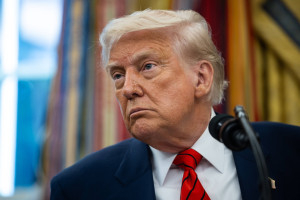Pharmacy for Pharmacist to change. NIA: we are willing to cooperate

- Will the issue of inheritance of pharmacies open the way to changes in the Pharmacy for Pharmacists Act?
- This may be the conclusion from the last meeting of the Parliamentary Team for the Regulation of the Pharmaceutical Market and Medicinal Products (6 May)
- Inheriting pharmacies can be a huge problem for some entrepreneurs today
- Depending on the form of running a pharmacy business, it will often not be possible to transfer pharmacies to your successors if they are not pharmacists
- Even if the heirs are pharmacists, it will not be possible to transfer all the pharmacies to them due to quantity restrictions.
- If AdA 2.0 allows inheritance for some companies, this only applies to inheritance upon the death of the testator
- This time, even the pharmacists' self-government side admitted that it is willing to consider how to ease the issues related to the inheritance of pharmacies.
- - If we assume that the regulation is fine in its substance, then the local government has declared that it will work out a solution and refine the regulations, which today may be extremely unfavourable for a certain group of entities - said Krzysztof Baka, legal adviser to the Supreme Pharmaceutical Council
- I will say honestly: AdA 2.0 is unfortunately not sustainable – said MP Jerzy Meysztowicz, vice-chairman of the Parliamentary Team for the Regulation of the Pharmaceutical Market and Medicinal Products.
He added that the team was established to consider what solutions to introduce, such as demographic and geographic principles, which currently prevent pharmacy owners from selling their own assets. The adopted solutions are to be recommended to the Chief Pharmaceutical Inspector, who is working on changing the pharmaceutical law.
- We need to introduce rules so that everyone knows where they stand, has clear regulations that they can comply with and so that one group is not harmed by another group that benefits from it. We should also develop rules to limit concentration and the possibility of one or another chain dominating the market. These anti-concentration regulations should also include pharmacies dependent on wholesalers. The problem of market concentration by wholesalers must be resolved. We cannot have a situation where we are talking about chains consisting of 100, 200, 300 pharmacies and not about 70 percent of the wholesale market in one hand - said Meysztowicz.
The MP referred to the Neuca wholesaler's partnership program, which does not have its own pharmacies but offers a cooperation program for independent facilities. The part of the industry focused on large chains considers this virtual network of pharmacies as a form of business dependence on each other.
As proof of this dependence, MP Meysztowicz quoted the general principles of cooperation from the wholesale agreement under the partnership program: - During the term of this agreement, the participant undertakes to purchase products, including reimbursed products, at the pharmaceutical wholesaler indicated by the organizer monthly at a level of no less than 80 percent.
Pharmacists fought back. - The Neuka program was also on my table and I was thinking about joining. I asked Neuka what the consequences would be if I didn't make 80 percent of my turnover. There are no consequences and it's not in the contract. For the company, it's a way of securing it. They invest in themselves and try to teach pharmacists what the chains do - commented pharmacist Paulina Sobańska-Rey.
And what do chains do? Chain pharmacies, thanks to the scale effect, can offer patients more attractive prices. They can apply dumping prices for a sufficiently long time to finish off any competition.
Price war on the pharmacy marketThe Polish pharmacy market is currently a terrain of fierce price warfare. Whoever offers products at a lower price will attract customers. The market has become partly a wholesale market, which gathers around themselves most of the pharmacies and either owns them or ties them together through business cooperation.
As individual pharmacists argued, for pharmacies that participate in the aforementioned Neuki program, this is the only way to survive on the market.
- I belong to a virtual network because it is a defense mechanism against what the networks do. Pharmacies had to start associating in the network, because otherwise they would not survive - said Paweł Iwaszko, president of the Pharmaceutical Care Association of Pharmacists.
In this case, various forms of cooperation come into play, including pressure to sell private labels. Both sides made accusations against each other for this.
- Every pharmaceutical wholesaler, especially the larger ones, has its own chain of pharmacies and its own brand. The own brand sells well because it is recommended by pharmacists, who receive a bonus of 8 percent for recommending specific preparations. And these are independent pharmacies. I ask, from whom are they independent? They are dependent on pharmaceutical wholesalers - said Dr. Łukasz Fijałkowski.
The other side does the same. Paweł Iwaszko gave examples of chain pharmacy practices reported by pharmacists :
- For both the patient and the employer, the most important thing is price. For the patients, it should be the lowest, and for the pharmacy, the revenue should be the highest.
- Pharmacists are rewarded for selling specific products.
- During a conversation with a foreign chain I learned that the care room is there, because it is there, but they will make more money selling their own brand. They will make a premium on that and there will be money for everyone.
- In one of the chain pharmacies I was ordered to ask specific questions, recommend products on sale. I was held accountable for this in the form of mystery patient checks.
Today, the pharmacy market is so divided that the Parliamentary Team will have a difficult task.
- We cannot reach an agreement because for the owner of pharmacies development means something completely different than for me. Today we can develop as pharmacists and our pharmacies as healthcare facilities. Development is not about taking up more land, buying more pharmacies and aggressively finishing off the competition. For us - individual pharmacists - we develop by doing training and implementing new services - said Paweł Iwaszko.
In addition to individual pharmacists who run a maximum of a few pharmacies, there is also a group of entrepreneurs who have gone into quantitative development, expanding their companies over the years to even 30 locations. The intention was to pass on the business to their descendants or sell the company to a larger entity.
In addition to all this, we also have foreign entities that have several hundred pharmacies. Some of them are investments of venture capital funds. The principle of their operation is simple: the fund invests money, in order to exit the investment with a profit after a specified period. The Apteka dla Aptekarza (Apothecary for an Aptician) introduced in 2017 has blocked these plans in a big way. Today, these pharmacies are practically unsaleable.
Only pharmacists can open a pharmacy in a maximum of 4 locations, with demo and geo restrictions. The same applies to taking over permits to run pharmacies. Owners of a dozen or several dozen cannot sell the company in its entirety, regardless of whether they are pharmacists or not. They have to divide their business into smaller parts. On the one hand, this can reduce the value of the entire company. Secondly, there must be buyers for these pharmacies. The topic of loans for young pharmacists to buy their own pharmacy - raised during the AdA procedure - barely made it to the meeting .
Inheritance issues to be changedAnd it was precisely the issue of inheriting pharmacies that was the most discussed topic of the meeting . Filip Gołba, advisor to the PharmaNET Pharmacy Employers' Association, stated that the current shape of the regulations means that, depending on the form of running the pharmacy business, it will often be impossible to transfer pharmacies to your successors if they are not pharmacists.
- In the case of larger entities, even if the heirs are pharmacists, it will not be possible to transfer all pharmacies to them due to quantitative restrictions. Even if AdA 2.0 allows inheritance in the case of some companies, this only applies to inheritance at the time of the testator's death - he added.
In practice, the current solution means that you have to run a pharmacy until you die, and only then possibly pass it on to your heirs. The regulations block the possibility of passing on running the business during your lifetime.
And this is not the only example of succession limitation. Life can be rich in surprising life situations.
- Inheriting pharmacies is a huge problem today. Imagine a divorce of a pharmacist who has to divide his assets. Or he falls seriously ill and can no longer run his business. Or he comes into conflict with the landlord. Everyone has legal title to the premises, but not everyone is the owner of the premises - listed examples Dominik Jędrzejko, advisor to the Nasza Apteka chain.
In the event of a problem with the premises, the pharmacist has no guarantee that he will receive permission to run a pharmacy at another address. This is limited by the deo and gemo regulations.
- These are things that were introduced completely without taking into account market rules and that is why we have to do something about it - said MP Meysztowicz.
This time, even the pharmacists' self-government side admitted that it is willing to consider how to alleviate the issues related to the inheritance of pharmacies .
- If we assume that the regulation is fine in its substance, then the local government has declared that it will work out a solution and refine the regulations, which today may be extremely unfavourable for a certain group of entities - said Krzysztof Baka, legal adviser to the Supreme Pharmaceutical Council.
Copyrighted material - reprint rules are specified in the regulations .
rynekzdrowia












